Quotes
We welcome the advent of a unified community of European researchers under the broad banner of AI (starting with, but not limited to, Machine Learning) that puts humane values upfront, and hence strongly support the establishment of a Confederation of Laboratories for Artificial Intelligence in Europe (CLAIRE).
Marc Schoenauer, Member of the recent Villani mission on French AI strategy, Chair of ACM-SIGEVO, Former President of AFIA, the French AI society; and Michèle Sebag, EurAI Fellow, Member of the French Academy of Technologies, Former President of AFIA, the French AI Society.
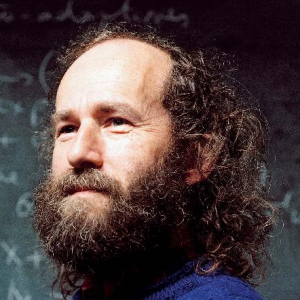
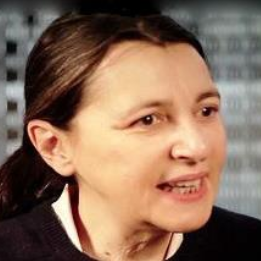

Machine learning is giving amazing perception capabilities to AI. But only a combination of data-driven and reasoning capabilities, together with a careful analysis of the ethical behavior and implication of AI, performed in a multidisciplinary, multi-stakeholder and multi-cultural environment, can significantly advance this powerful technology and make it beneficial to humanity.
Francesca Rossi, EurAI and AAAI fellow, JAIR Editor in Chief,
Member of EU High Level Expert Group on AI, IBM Research and University of Padova.
We live in a knowledge-driven world. Knowledge and smartness are the most valuable resources in any society. Hence, investing in research and education is smart. Investing in research and education in artificial intelligence is doubly smart: It gives intelligent people and machines.
Holger Hoos, AAAI Fellow, Professor of Machine Learning,
Leiden University, The Netherlands.
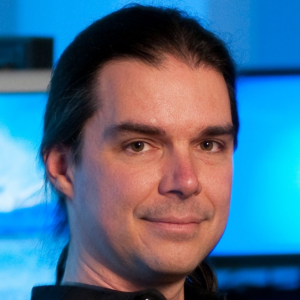

Artificial intelligence is a global “game changer”. It will transform our lives and our societies. It is sometimes said that the best way to meet the future is to create it. Let us not leave that to others.
Morten Irgens, Vice-Rector, Oslo Metropolitan University, Norway.
This investment is enormously important for Europe. But let us be smart about how we use it. We, who have signed this letter, feel it is necessary to invest in research excellence in all areas of artificial intelligence, across all of Europe.
Philipp Slusallek, Scientific Director, DFKI, Germany.
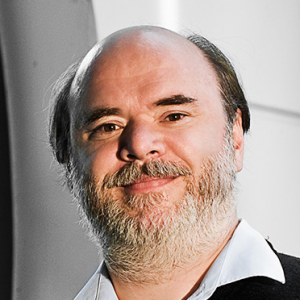
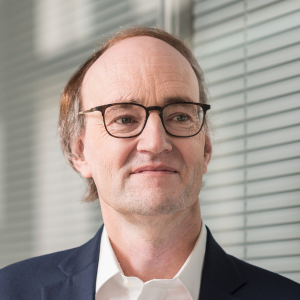
AI will have a huge influence on our society and is currently developed elsewhere, driven by commercial and military objectives. Within the CLAIRE initiative, we are working to shift the AI research agenda to emphasise our European values of fairness, truthfulness and privacy. Such technology will give us an edge in emerging applications in medicine, digital government, and legal services, to name a few examples.
Boi Faltings, AAAI and EurAI Fellow, Swiss Federal Institute of Technology, Switzerland.
Europe has always played a major role in AI, but now there is a danger that without a determined reaction at all levels (academia, governments and private sector), Europe might lag behind China and the US. Therefore, I very strongly support this much needed initiative to boost AI in Europe by performing high quality human-centred AI research across all AI and all Europe. Machines should not be our competitors but our collaborators. The impact of AI, good or bad, will be always our responsibility.
Ramon Lopez de Mantaras, EurAI Fellow, Former IJCAI President and Trustee, Director,
Artificial Intelligence Research Institute (IIIA-CSIC), Spain.
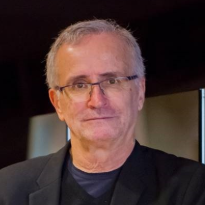

This is an exciting initiative. I hope that, despite Brexit, the UK can play a full role in it.
Statistical machine learning has made some amazing advances, but we are now beginning to see its limitations, especially regarding explainability, or rather the lack of it. The next stage of AI will require a combination of logical and statistical techniques.
Alan Bundy, Eur AI Fellow, AAAI Fellow, ACM Fellow, Royal Society Fellow, Royal Academy of Engineering Fellow, Commander of the British Empire, University of Edinburgh, UK.
Recent breakthroughs in deep learning have created the illusion that deep learning will solve all of AI. This illusion is false as truly intelligent machines should not only learn but also reason, just like humans do. Self-driving cars, for instance, must comply with, and hence, reason about traffic regulations. The long-term promise of AI can only be realised by fostering all AI techniques. A too narrow focus is like claiming that the important invention of rubber tires in the automobile industry could also lead to better engines.
Luc De Raedt, EurAI Fellow, ERC Advanced Grant, KU Leuven, Belgium.
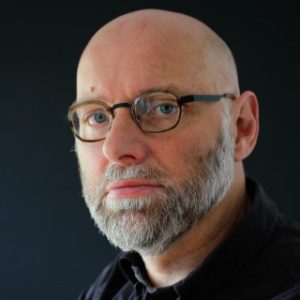
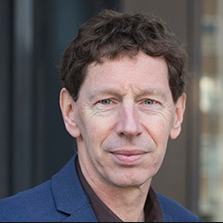
AI techniques must be human-centred, and Europe can bring this to the current AI revolution. AI machines that collaborate with people instead of replacing them, AI programmes that can explain their conclusions, and that respect important values such as transparency and fairness are crucial to the beneficial use of this technology for society.
Frank van Harmelen, Member of the Royal Netherlands Academy of Arts and Sciences and member of the Academia Europaea, Vrije Universiteit Amsterdam, The Netherlands.
AI in Europe requires a broad basis. Many and diverse talents are needed to further AI research and innovation to benefit our continent. Now is the time to invest in Europe’s globally recognised centres of excellence in AI to lead the way in AI with a European face.
Maarten de Rijke, Director Innovation Center for AI, Member of the Royal Netherlands Academy of Arts and Sciences; University of Amsterdam, The Netherlands.
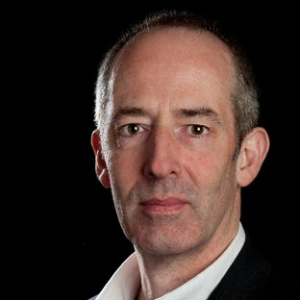
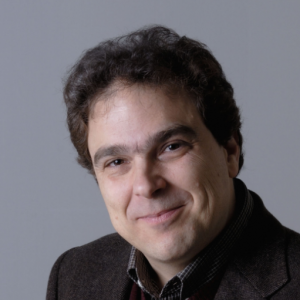
Soon, systems will reprogram themselves to adapt automatically to changing circumstances. Equipping systems with self-programming capabilities carries significant risks and therefore we must be able to balance power with safety. For this reason it is important keep such systems guarded by human guided specifications and oversight, i.e., systems whose self-programmed behaviour is comprehensible and analysable in human terms. The CLAIRE vision of human centred AI is crucial.
Giuseppe De Giacomo, EurAI Fellow, AAAI Fellow, ACM Fellow, Univ Roma “La Sapienza”, Italy.
We need AI that complements human intelligence rather than replaces it, AI that helps us overcome our limitations and biases. This is a key aspect of the human-centred approach to artificial intelligence called for by the CLAIRE initiative and the European Commission.
Holger Hoos, AAAI Fellow, Professor of Machine Learning,
Leiden University, The Netherlands.


Industry in many European countries is very well positioned to deploy AI technology. The question is whether that should be technology developed elsewhere, or AI “made in Europe”, strongly based on European values, such as transparency, fairness, social compatibility.
Morten Irgens, Vice-Rector, Oslo Metropolitan University, Norway.
CERN is an excellent model of what we plan to achieve with CLAIRE. The core research is done by many excellent researchers and labs distributed across Europe and the world. But by coordinating their research, they get much more leverage and wider recognition in all areas.
Philipp Slusallek, Scientific Director, DFKI, Germany.

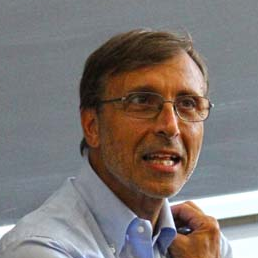
The richness of AI methodologies and tools are crucial for conceiving a new generation of data processing systems, where modelling, reasoning and learning techniques may support individuals and institutions to shape and govern a virtuous data-driven society. The CLAIRE initiative may play a precious role toward this goal, by fostering collaborations among different research groups working on data management from diverse and complementary perspectives.
Maurizio Lenzerini, EurAI Fellow, AAAI Fellow, ACM Fellow, Member of Academia Europaea, Univ Roma “La Sapienza”, Italy.
To reach our ambitious goals and to realize the vision of a productive epoch-changing interaction between humans and intelligent machines of every kind, we need to forcefully develop all the branches of Artificial Intelligence. By its broad research tradition, Europe is especially well placed to complement the advances in “Animal AI” (machine learning, pattern recognition) by “Human AI” (reasoning and rational normative social action).
Leon van der Torre, EurAI Fellow, University of Luxemburg, Luxemburg.
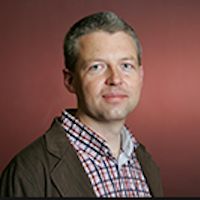

Long-term health outcomes are often driven by a broad range of clinical and biological factors. Advances in biological assays, wearable sensors, and electronic health records have now brought us closer than ever to a truly personalized healthcare system. I believe AI will provide the last piece of this puzzle by augmenting (and not replacing) the capabilities of our caregivers. Therefore, both the research and the educational aspects of the CLAIRE initiative are of critical importance for the interdisciplinary future of medicine.
Nima Aghaeepour, Assistant Professor at the Department of Anesthesiology, Perioperative and Pain Medicine, Stanford University School of Medicine, USA.
CLAIRE will advance the state of the art in a wide spectrum of AI technology that is relevant for various robotics developments and applications including logistics, manipulation and self-driving cars.
Wolfram Burgard, AAAI, EurAI and IEEE Fellow, Freiburg University, Germany.


With CLAIRE we can strengthen the collaboration on AI in Europe in order to be able to better interact with similar initiatives across the world and to establish a strategy for the evolution of AI that takes into account all research areas and the ethical, economic and social aspects so that the whole humanity can benefit from it.
Piero Poccianti, President of the Italian Association for AI (AI*IA), Italy.
AI already has a big impact on our society, but this impact is negligible compared to how it will transform our lives in the coming decades. Anyone who cares about human values should encourage a human-centred focus on AI research. Next generation AI systems must become more socially-aware, explainable and responsible. The European AI community is in an ideal position to take on this challenge, but this requires a unified approach. CLAIRE is an excellent initiative to realise this.
Tibor Bosse, President of the Benelux Association for Artificial Intelligence (BNVKI),
The Netherlands.
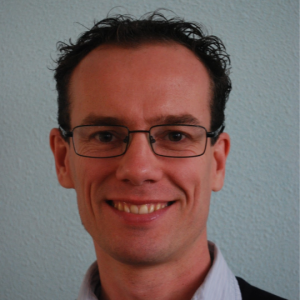

The establishment of a network of co-ordinated AI initiatives is key to avoiding a concentration of social and economic benefits in the primary clusters of AI research and AI startup activity. AISB has been working towards this by holding research meetings across all geographic regions in the UK and by giving the UK’s AI sector a voice in Europe. We acknowledge the importance of the vision set out by the CLAIRE initiative and fully support it.
Dr Bertie Müller, Chair of the Society for the Study of Artificial Intelligence and Simulation of Behaviour (AISB), Associate Editor of the international journal Connection Science, Swansea University, UK.
Artificial intelligence has the potential to change the world, more so than almost any other technology. To realise this potential, we need better planning, organisation and funding. To do it in a way that benefits the humanity, a public initiative such as CLAIRE is our best bet.
Mitja Luštrek, Chair of the Slovenian Artificial Intelligence Society, Head of the Ambient Intelligence Group at the Department of Intelligent Systems, Jožef Stefan Institute,
Ljubljana, Slovenia.
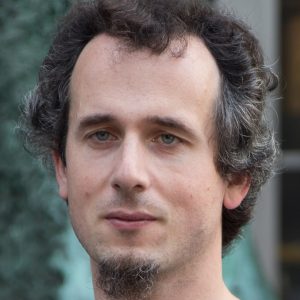
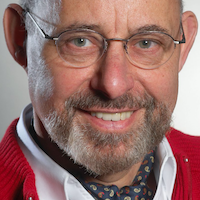
AI has always been – to my mind – a subject whose potential is on par with some of other fundamental historic scientific achievements like say quantum physics or logic, possibly however with much more dramatic applications and influence on how we will live on this planet in the future. Recent breakthroughs in neural computing and deep learning triggered a new excitement worldwide, but it is now becoming increasingly clear, that these techniques alone will not achieve machine intelligence on par with human capabilities. Reasoning on a symbolic level, as we humans do and which has been the hallmark of classic (good old fashion) AI research, has to be part of it. The scientific challenge of the immediate future is how to integrate these two research paradigms. It is here where Europe has always been a strong academic player, including the insistence on a human centred AI, which is the main focus of CLAIRE.
Prof Dr. (Ph D) grad Ing Jörg Siekmann, EurAI and GI Fellow, Co-Founder of DFKI, Senior Professor at University of the Saarland and DFKI, Germany.
Humans get so much from so little. They acquire a great and flexible understanding of the world given what is clearly, by today’s AI standards, so little data, so little time, and so little energy. Together with models from computational cognitive science, machine learning and AI will lead to intelligent machines that are less data hungry but satisfy the thirst for knowledge. Machines will not only make predictions but also explain and justify them. They will reason about data and cooperate with humans to solve difficult and fluid problems for the benefits of society, science, and business. Achieving this requires a similar push in investment as exploring flights to Mars or elementary particles in order to promote AI training, research and transfer massively.
Kristian Kersting, Professor for Machine Learning,
Deputy Director Center for Cognitive Science, TU Darmstadt, Germany.

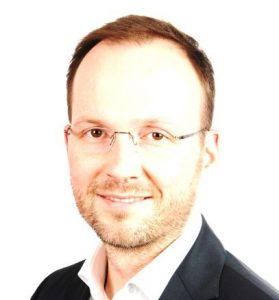
AI is a set of technologies that is rapidly changing the world we live in. For our industry, it is a game changer and a major source of innovation. CLAIRE’s emphasis on the ‘human element’ and the spirit of cross-country collaboration is completely aligned with our company DNA. We’re therefore delighted to be amongst the first industry supporters of this important pan-European initiative. It perfectly complements the work of our own AI R&D teams in India, Ireland, Germany, France and Spain, and our long-term academic partnership with ERCIS (the European Research Center for Information Systems), ensuring that we’re involved in the very latest developments and innovations in AI.
Karsten Kraume, CIO at Arvato CRM Solutions / Member of Bertelsmann IT Board, Board of Advisors at BPM Rise, and Advisory Board, ERCIS, Germany.
I believe in the scenario in which Europe is the leader in the development of Al technologies. In this context, AI is integrated ‘naturally’ into our lives and is used on a daily basis in the most varied aspects. Europe benefits from this leading position, sustaining an advanced democratic society with high standards of living for its citizens.
Together in the CLAIRE initiative we can all contribute to this desideratum.
Paulo Novais, President of the Portuguese Association for AI (APPIA) and Professor of Intelligent Systems, University of Minho, Portugal.
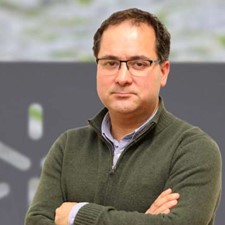
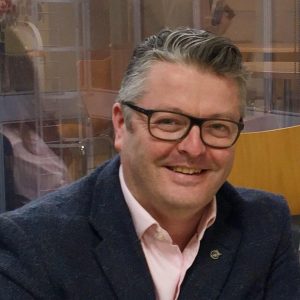
Friday’s CLAIRE symposium was an excellent example of how the European AI community can begin to work together towards a large strategic concept. The broad AI ecosystem in Europe needs to be far more integrated, and CLAIRE is very much a step in the right direction.
Professor Barry O’Sullivan, President of the European Artificial Intelligence Association (EurAI) and Professor at University College Cork, Ireland.
The French government has presented a strategy for AI that covers many aspects, ranging from long-term research to dissemination in the economy, talent training and explicit consideration of societal impact and ethical issues. This strategy also clearly identifies the absolute need for tight coordination and cooperation at the European level, in order to have a global impact, as emphasised, for example, by the CLAIRE initiative. It is therefore very timely and welcome that the relevant scientific communities work together, with governments and with the European Commission, to ensure that all efforts are well coordinated towards the best chances for European excellence in artificial intelligence.
François Sillion, Coordinator of the French AI research program, France.
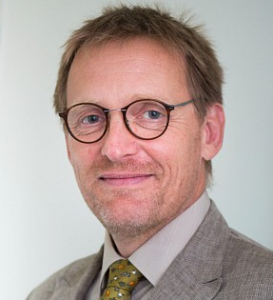
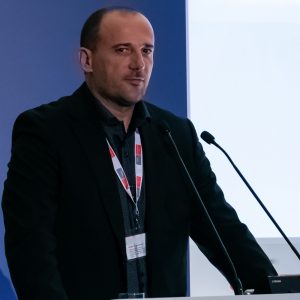
AI is rapidly progressing and already changes our lives by increasing the automation and boosting our efficiency. Investing in AI research and innovation today can clearly benefit humanity. In the years to come, with planning, organisation and funding, AI will create jobs and strengthen the economy in our continent. I strongly believe that the CLAIRE initiative can be the main force to achieve these goals.
Vassilis P. Plagianakos, Chair of the Hellenic Artificial Intelligence Society (EETN) and Associate Professor and Department Head of the Department of Computer Science and Biomedical Informatics, University of Thessaly, Greece.
In AI, a winner takes all and a bit more. It is vital to strengthen the force of AI-innovation in Europe through CLAIRE and ELLIS. And it is vital to value the force of data in the world through EU-guidelines integrated in AI-technology.
Arnold Smeulders, University of Amsterdam, Chair of the Board of COMMIT/, Member of the national program committee for AI AINED, Member of the Academia Europea, Recipient of the ACM MM Lifetime Achievement Award, Former Chair of the ICT Platform, The Netherlands.

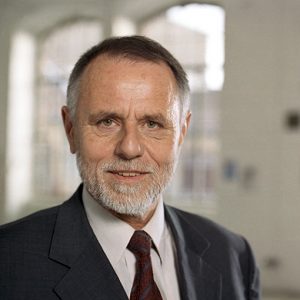
I am excited to see a decades-old dream of the European AI community now possibly come true. Especially, I appreciate CLAIRE’s envisioning all of AI rather than just one of its techniques currently en vogue. Intelligence is a combination of evolved and learned features and the ability to reason rationally. Both are crucial for achieving optimal solutions to the benefit of mankind.
Wolfgang Bibel, EurAi and AAAI Fellow, Recipient of IJCAII and EurAi Distinguished Service Award, and of Herbrand Award, Professor emer. Darmstadt University of Technology, Germany.
AI is a critical new enabling technology for Europe’s earth observation sector, whose growth will be accelerated by Europe strengthening our own AI capabilities. There are also powerful synergies between Europe’s earth observation and AI assets that offers us new science and technology in both domains. So I strongly support the vision for European AI excellence put forward by CLAIRE.
Josef Aschbacher, Director of Earth Observation, European Space Agency, Italy.
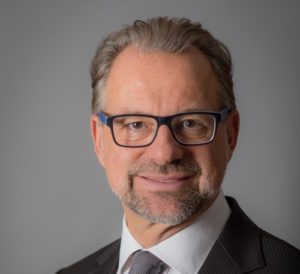
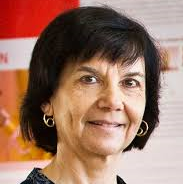
For assistive robots to be safely deployed, their behavior should be transparent to people and, thus, their reasoning and learning processes need to be traceable and explainable in human terms. Such symbolic reasoning and learning is at the core of research in AI and, given the long tradition of European research in this area, the CLAIRE initiative is badly needed to develop robots in an ethically-aligned way that would contribute to the well-being of citizens at large.
Carme Torras, Member of Academia Europaea, EurAI, IEEE and ECCAI Fellow, Institut de Robòtica i Informàtica Industrial (CSIC-UPC), Spain.
This is only the beginning of the AI race. Europe, with its thousands of years of multicultural history, its tradition of multilinguism and its kilometres of archives, libraries and cultural heritage artefacts has a uniquely rich set of data to develop broader and wiser Artificial Intelligence. European AI, not only analysing the pulsations of the present, but embracing wider geographical and temporal horizons, will be in a unique position to play a pivotal societal and economic role in the next 50 years.
Prof. Frederic Kaplan, Director of EPFL Digital Humanities Laboratory, Steering Committee of the Time Machine Project, Switzerland.
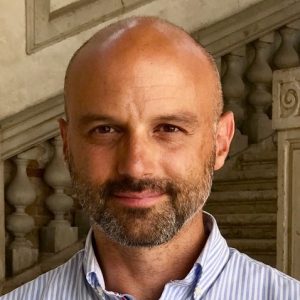

Next to world class research, world class teaching and education is required to attract, build up and retain world class talent. It is inefficient to create & maintain top-notch AI course materials completely independently at every university in Europe, with severely limited resources each. Highly qualified CLAIRE Teaching Fellows will solve this problem by helping to collect, organize and create world class AI teaching materials for all educators in Europe to bootstrap from.
Frank Hutter, Freiburg University, Germany.
I firmly believe that the advancement in machine learning and AI research will be one of the main factors of economic growth for the next years. The CLAIRE initiative is what we need to strengthen the role of European community in this field.
Gian Luca Foresti, Full Professor at the University of Udine – Italy, IAPR Fellow, President of the Italian Association for Computer Vision, Pattern Recognition and Machine Learning (CVPL – IAPR Italian chapter), Italy.

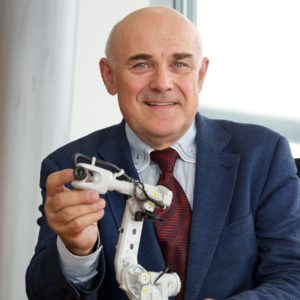
It is time to enhance synergy in collaborative AI research to achieve the goals which are in front of us, mainly to keep Europe competitive and to bring smart solutions for the society. I can see CLAIRE as an important vehicle for bringing together visions, labs and poeple accross Europe, for joint creating research excellence and nursuring innovations.
Vladimír Mařík, Scientific Director, CIIRC, Czech Technical University, Prague, Czech Republic.
